The Monetary System And The Power Of The Fed With Andy Tanner
Podcast: Play in new window | Download
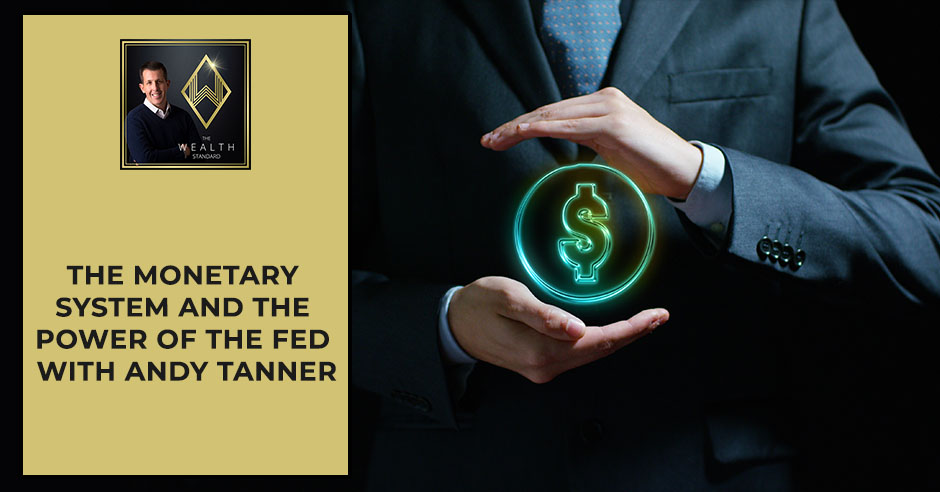
There is so much going on in the economy right now that many of us are not familiar with that it’s often anybody’s guess what’s going to happen next. What are the things that we need to learn to be able to navigate this uncertainty? There is not much in monetary policy that we can control, but there are things we can do to thrive in our business. Renowned paper assets expert, successful business owner, and investor, Andy Tanner, discusses these things with Patrick Donohoe from the standpoint of practicality. He encourages you to learn about Modern Monetary Theory and understand the Federal Reserve’s power in commanding monetary policy. By arming yourself with this knowledge, you enable yourself to utilize information that is of practical importance in your own sphere.
—
Watch the episode here:
Listen to the podcast here:
The Monetary System And The Power Of The Fed With Andy Tanner
Thank you for reading this episode. It’s a fun one and it’s with someone that I’ve had on a number of times and his name is Andy Tanner. He’s one of the most informed guys that I know and also a very deep thinker. He lives in Utah close to me. We have to block out the entire day because we essentially get into all theories and perspectives. There aren’t many thinkers out there that are open-minded to the point where they can explore their own perspectives, their own opinions, and be willing to be challenged. He is definitely one of those people. We have a great conversation about the economy in general, where things are going, investment opportunities, what to look for and given what’s going on, it’s anybody’s guess how things are going to shake out. Some of the things we discuss are what you can start paying attention to and hopefully start to identify opportunities when they arise. I’m going to get to the interview. You are going to enjoy it. He is an incredible guy and great speaker, very well-articulated, and can explain things in very simple terms.
—
This is going to be a very appropriate conversation given what’s going on in the economy and there’s a lot. I include myself in the group that feels somewhat paralyzed, deer in the headlights, and trying to figure out what to do. I thought of no one better to pick my brain apart and help me understand what’s going on than Andy Tanner.
Patrick and I get together and when we do, it’s like the Smorgasbord Feast of reflection, sharing, and perspective. Patrick spends so much time learning and researching. We often say we live in an echo chamber but we share a lot of common relationships. Our friend Richard Duncan who’s a former IMF consultant, an economist, and one of the smartest guys that I know, I had a conversation with him and I think you had one shortly after that. We’ve come back together to talk a little bit about what we got from Richard. That’s what we’ve been chatting about and we thought, “We should do a show.”
The nuggets that we want to pull from it are what would be most valuable to you because there’s much going on in the economy that most people are not familiar with. In talking to Richard, I became clearer about certain things and I’ve had lots of response to it. That’s why we want to speak to him because the response isn’t necessarily what’s happening and what system do we operate in. It’s more geared to the system that we should operate in. That’s valuable. Andy, I’ll throw it on you first because in your business, what you teach is paying to what markets are doing, what asset prices are like and what impact do interest rates have on value. You’re looking at this every single day. When you talk to Richard, what stood out most to you that would help you better educate your audience and understand the economy at a deeper level?
The context you set around that is one that we should maybe dwell on is the idea of practicality. We can give our opinions and talk about concepts, but what is it that I can put into practice? Where’s the practicality? What we find, studied and learned, that’s the most valuable nuggets and the stuff I can use because, at the end of the day, when you learn something, you have to be able to say, “It isn’t about learning what’s right or what’s wrong, or what should be, but it’s what can I use, what should I study and what can I do in my own sphere?” That’s an important thing.
The thing I took away from Richard to answer your question, is we talked a lot about the idea of what are the consequences of stimulus in terms of money creation and debt? What are the consequences of the Fed? The right or wrong question is, should the Fed have this much power? Is that what should be? That’s up for debate, but the reality is they have it. Whether I agree with printing a lot of money or don’t, what’s the practicality of it?
I decided during COVID-19 very early on after I spoke with Richard during the pandemic that I was going to increase my study for monetary policy because the decisions I need to make practically are staying in stocks or buying protection stocks, or even buying new stocks and selling others. I’m making those practical day-to-day decisions based on watching much of the Fed than any other factor in the world. From a practice stallion standpoint, what is after the practice? Protecting stocks, holding stocks or buying new stocks, and you’ll have other asset classes too that matter. That’s where the rubber meets the road for me because I have to know that stuff.
That’s what I said to you in preparation to this. Ray Dalio’s video that I’ve mentioned on the show before, it became clearer to me about what he was saying. The main thing I walked away from my conversation with Richard is there’s this ideal way of that things should work according to me or another person, but then there’s reality. There are things you can control and things you can’t control. I can’t control the monetary system that I live in.
It comes down to what can I understand about it and subsequently, what can I do about it to improve my business, my lifestyle, to increase wealth, to help the audience? A lot of the feedback I’ve gotten was, “It should be like this,” “The Feds and the government should do this.” In the end, whether they should or shouldn’t, they’re going to do things that are outside of your control. If the Fed is going to do this, if you pay attention to this news, then you can subsequently see what the next domino is in that stack and make a decision accordingly.
The alcoholics and anonymous people are in a rough spot in their lives and so how do you find serenity? That serenity prayer for an investor is as good for an investor. It would be for someone that’s trapped in a substance abuse situation. With my wife and my sons during COVID-19, there’s unrest politically and a war of racism that’s raging. You look at a little 14 or a 12-year-old mind who’s very connected to media, sees the news, and this is an interesting time for family and that idea of serenity, where does it come from? It doesn’t come from maybe advocating so much as it is beginning here. Not that you shouldn’t advocate but, “What can I control and not control?” Let’s get the wisdom to know the difference, except the stuff you can’t and change the stuff you can. As I learn about things like MMT, Modern Monetary Theory, and the amount of printing money, I don’t have any control over the stimulus. I have a vote and that’s for another day. For July 2020, there’s absolutely no impact that I can have at least in my sphere of influence on whether or not we do another trillion dollars.
Accept the things that you can’t change and change the ones that you can. Share on XFrom a practicality standpoint, what does that mean to you as a reader? If you’re in stocks or an investor, you have to decide whether it’s right or wrong or whether we should be bailing ourselves out, or we should let the forest fire burn out for new growth, or should we spend money to fight the fire? Meaning, do we let COVID-19 burn through or do we keep trying to flatten the curve? Do we overwhelm the hospital system or not? All those decisions are out of our control. What I can control is, “Am I going to buy puts to protect stocks, or am I going to short to market?” For me, the answer is no because if they put another trillion dollars, which I think they’re going to have to do, clearly the stock market has made the decision to go with the Fed as opposed to any other number.
You and I looked at some charts going back to 2018 and everything was fine, coin’s rolling, unemployment’s low. At the end of 2018, the Fed says, “Maybe we should reload our gun a little bit. Maybe we should raise interest rates so we can lower them again in the rainy day, and the vicious market thing.” We had a chart and I looked at that and it showed, “We were more afraid of a market crash when the Fed raised the interest rates a half a point and we were of COVID-19 in terms of how it might affect the market.”
The Fed is the first domino in our monetary system, whether they expand or contract the money supply. That sets in motion as a cascading effect. I’m not saying that there aren’t consequences and whether that’s the right thing to do or not, it’s done. Knowing that, you can start to look at, “How is that going to impact unemployment, or impact housing, or my job, the company I work for?” You start to ask questions of, “What domino is next, and what’s after that?” What that does is it helps you to either play a more defensive role or play an offensive role. Defensive in which is, “That can negatively impact employment, therefore I should probably stock up on some reserves and maybe look at other places to live or another company to work for.”
To use your domino metaphor, it’s not only the first one to fall. It weighs more than every other domino on the table. When it falls, it doesn’t trigger one, it smashes half the dominoes on the table. From a practicality standpoint in making these decisions, it’s not only important to understand what it does, but what’s the magnitude of those decisions? You talk about this idea of whether it’s right or wrong in your opinion. I mentioned that the thing I would communicate with people if they want to study this is understand the power of the Fed. I understand how big that is. Not that it’s just the first one. How big is it to where it’s able to overwhelm the worst economic data that I’ve ever seen years of doing this and then I could look back and see?
We looked at those charts. We looked at the velocity of money which is you have productivity measurements at the lowest in history.
We’ve never had money halt like this in the US and that’s probably an extrapolation globally. We’ve never seen business haul like this and the Nasdaq is at new highs. COVID-19 didn’t even happen as far as the Nasdaq concerned. Think of the power of the Fed, we have the worst unemployment since 1929. If you’re talking about velocity, people should understand this. Gross domestic product is hard for people to understand because the number gets bigger and smaller. It can be very tricky. People think it’s a function of volume, but it’s not. It’s a function of speed. What it is, if you had a counter, they clicked every time money changed hands, the number on that counter would go up, that’s GDP.
I go and mow your grass and you give me $50. The government says to chain taxes me and then I take the remainder of that $50 and I go to R&R BBQ. Click, another transaction. That same $50 has been transacted twice. Now, the GDP has gone from $50 to $100. R&R takes it and they pay one of their employees. They take it and they go to a movie. None of those things are happening. I might mow your grass, but I’m not going to R&R because I’m scared of COVID-19. Even if I did, that employee is not going to the movies because they’re not open.
There’s been a halt to the velocity in those counters. Our GDP shrinks not because the amount of money is less. It’s because we’re not doing business, we’re not consuming what’s being produced. There’s something called the producer index, manufacturer’s index, and purchasing manufacturer’s index. If I’m a purchaser of raw materials to be manufactured into goods. I work at Tesla and I’m the guy in charge of buying the raw materials to make a Tesla. If I spend money to buy those materials to make a Tesla, I don’t think I’m going to sell Tesla’s. Now, all my money is caught in inventory, which is devastating to a business if you have money caught in inventory that you can’t sell, because that’s money you’ve got to pay on. If you’re leveraging, it halts.
When you look at the purchasing manager’s numbers where they all report what they’re buying, they’re the lowest I’ve ever seen because they don’t think they can sell anything. All of this stuff starts to grind to a halt and all these numbers should say, “Businesses are not going to be profitable. They’re not going to be able to pay dividends. They’re going to suck. Why would you want to buy businesses like that?” Because the Fed’s going to buy them up and drive the price higher with supply and demand. From a practicality standpoint, I see a detachment from fundamentals. I see an increase in supply and demand activity. That’s practical knowledge I can use to make decisions on where I want to be. Do you want to fight the Fed? That’s a big domino to fight.
You said supply and demand and its artificial demand based on fundamentals whether you’re going to get gain from it and dividend forum, long-term growth. The Fed stepping in that’s going to create artificial demand.
You could say that’s a bubble, but the thing of it is whether it’s artificial demand or real demand, the transactions are not artificial. The stocks are going to be bought and the price goes up and the stocks are bought. I talked with Richard Duncan and we disagreed on it. What should happen is the Fed probably should’ve stuck to buying US treasuries, but the Fed decided to buy corporate bonds and consequence at that. Janet Yellen comes out and says, “We should expand the Feds’ power to buy equities.” Richard said, “I agree. That’ll prop up the stock market.” I’m like, “Now you’re buying companies that suck. It’s like you bought all the crappy debt, now you can buy a crappy company in the name of keeping their stock price high. What if the company sucks?”

Monetary System: The Fed is not just the first domino in our monetary system. It is the largest domino. When it falls, it smashes half of all the other dominoes on the table.
If you’re a technical guy and if you care about dividends, that’s probably going to be ugly, but if you care about buy low, sell high, the stock market is probably going to boom. That’s the power of the Fed. I gave you the analogy of Batman where he’s trying to find the Joker so he taps everyone’s cell phones. Lucius comes in and says, “This is immoral and illegal.” He says, “Yes, but I need this much power to get things done because we’re an emergency. The emergency deems that I use this power and abuse this power to find the Joker.” Lucius says, “No one man should have this much power.”
From a moral standpoint, we can talk all day about whether the Fed should be able to do all this crazy stuff and whether we should have that much power, but in reality, practically, there’s nothing I can do about that. I got one vote. That’s not much power and I can spend my time marching or I can spend my time preparing. That’s a big deal. I’m not going to march against the Fed, that’s a waste of time. I’d rather march for equality and racism.
Who knows if this monetary system is going to continue? It’s massive and it’s the entire world. What Ray Dalio talks about is, you have those three core factors. If you understand them, you can see how things are going to end up. If you have the productivity, then you have a short-term and long-term debt cycle. The long-term debt cycle is a new monetary system which comes around every so often. Who knows if it’s going to adjust, it’s going to be worldwide? When that happens, then you’ll know what to do about it.
Preparing for it to happen is one thing, but then acting after it happens is another. I look at acting after it happens is understanding the anticipation factor, which is seeing what they’re going to do, and then subsequently, what are the dominoes that fall after that? I look at trying to take a moral stand against the Fed is a losing battle every single time. Now that you have an understanding about how markets work, how the debt cycles work, how the Fed works and what they’re going to do if they stimulate, what’s going to happen? If they don’t stimulate, what’s going to happen?
They’re going to stimulate. It’s clear to me, even at the risk of the dollar, the more deflationary events that they see and historically in 2007, 2008 this happened, they have more confidence by balancing deflationary circumstances with inflationary policies, because they have made a total commitment not to go to 1929. A total commitment not to do that. These numbers are worse than 1929. They said, “It worked in ‘08. It’s going to work again.” We’ve got a $3 trillion debt in three months.
We’re going to put another trillion on top of that. They’ve made a total commitment to doing that. The dilemma someone has as an investor in a 401(k) holder is, “How does that affect things for me? What’s going to happen to my retirement?” I’m less scared for the entrepreneurs that are savvy. There will be some small business owners who are going to fly by night, but the entrepreneurs know what they’re doing. High-level investors, they study this stuff, they get it. The average person of 401(k), they’re not talking about what you and I are talking about. They’re distracted by other stuff. There has never been a more important time for financial education in the history of mankind.
Specifically in markets, because when there are leverage and unprecedented actions, you have big swings and that’s what good long-term investors don’t get. The bigger the swing, the worst the average. If you lose 30% in a month and then you gain that 30% the next month, you’re not back to where it’s even.
If you lose 50%, you’ve got to have a 100% increase to get back to even. We looked at the numbers on debt. Just the private debt alone in corporate stuff is bigger and then a GDP already. If you have national debt to GDP. The national debt is about $22 trillion, $23 trillion, and $25 trillion. Corporate is bigger than that. The GDP is shrinking because the velocity of money is stopping. How important is it to know the power of the Fed? It says you’ve got unemployment bad, all those producer indexes, all those, consumer indexes, the debt is high, GDP shrinks and the Nasdaq’s at an all-time high. That’s the power of the Federal Reserve.
In hindsight, look at how quickly they responded.
If you look at the subprime meltdown of ‘07 and in ‘09, it hit the bottom. Over three years, they say, “We’re going to do this much a month.” On the way up, they still thought we were struggling and say, “We’ll do $50 billion a month.” It took years to put that amount. In COVID-19, $3 trillion in a week.
If you look at what the mortgage industry did where within days or week automatic forbearance, “Here’s what you can do. You can defer it,” the last thing they want is default because if they default, then you have all the credit swaps. They get triggered if there’s default on the mortgage bonds. They’re at a different level. They learned a lot from 2007, 2008, 2009. They’re using all of those tools to combat this and it’s almost immediate.
What’s frightening is you use the word artificial. Think about this. All the people who did get laid off are not working. What I’m saying is, is the paycheck is artificial because the work’s not being done. We’re getting paid and they’re going to take that money and go up. It’s the transaction that matters, not the artificiality of it. These are not artificial transactions. It’s artificial wealth. In other words, “I got laid off, get my signature check. I’m still going to the grocery store, but that’s not a true representation of my standing. It’s borrowed money from the government.” That works with assets too, “I decide to buy stock and that money is coming from borrowed money, but yet whether it’s a real demand or an artificial demand, the transaction is still happening.”
Underneath all this, you also have people who are employed or unemployed. What I mean by that is you have the Paycheck Protection Program, the PPP loan. If you take that money, Patrick, are you allowed to lay people off? If no, your check is an unemployment check now. It’s coming from you instead of the government because you have people that are not working and when they don’t work, you lay them off. The government says, “No. We’ll send money to you to keep them employed, but they’re not working.” Our unemployment is higher than we think because they’ve got the government unemployment program, but PPP is a corporate unemployment program. The number of unemployed is higher.
The best thing to do as an investor right now is to study Modern Monetary Theory and the Fed. Share on XI’ve got a lot of friends who learned how to trim and learn how to innovate and been forced to economize. A lot of them have been telling me, “This is one of the best things that ever happened because we got smarter as a business.” They’re not going to hire those people back. It isn’t like when we go back to a new normal, it’s like, “We need everybody again.” They’ll say, “No. We’ve learned to use technology.” “This telecommute stuff is cool. There are technology and online meetings and I have this manager, I realized he didn’t do a $100,000 worth of work.”
Here’s the thing, even though there was no intervention by the government, there were stimulus, unemployment benefits, PPP loans and other programs, disaster relief programs. Those helped at the same time, the psychological impact. You can’t paper over that. Even though it wasn’t the impact of loss, it was pretty close. What happened is in those moments, that’s where the greatest lessons are and that’s where you learn to be more efficient.
You’re smarter. You asked different questions. You’re aware of different things and you no longer tolerate what you may have tolerated in the past. That’s going to change the nature in which businesses operate, regardless of what happens with the Fed if they continue to stimulate. This is still in motion. The dominoes are in the process of being hit or falling. Who knows how they’re going to land or when they’re going to land? Regardless, these things are in motion.
If you understand that, “It could fall this way or it could fall that way,” you’re not going to be able to control that, but hopefully, you can get a grasp on, “If they do fall, what am I going to do?” or, “If I think they’re going to fall, what’s a way in which I can mitigate my risks or have additional options?” It’s an incredible time for learning and introspection. I would say the one thing that’s in Ray Dalio’s How the Economic Machine Works is the idea of productivity. That’s one thing that is, you’re creating the money or the currency that people are spending, but productivity is probably at the lowest level ever and it’s continuing. It’s hasn’t necessarily come to fruition yet.
Richard Duncan talked about productivity and creditism. When I talked to him, he says, “There’s no capitalism anymore. It’s creditism because you can’t have productivity without expansion credit.” Dalio talks about expansion contraction though. That’s inevitable and he’s right. MMT, Modern Monetary Theory believes in expansion without contraction. They believe as far as debt goes, you can expand it. That the expansion-contraction comes through money supply, not debt. If you can run deficits to high heaven, it doesn’t even matter.
There is no problem with the debts because we can print money, it’s all inflation for them. From a practicality standpoint, it’s like the book, Rich Dad Poor Dad, where it talks about go to school, get a job, save money. You can’t do that. If the MMT is all about inflation and saving money, you have to be smart about saving money because it can be a bit devalued quickly from a practicality standpoint. The occupation that is scariest is a teacher.
I’ve never homeschooled my kids before. I always thought, “A lot of people do it, but I don’t want to spend time.” Name one person you know that’s homeschooled their kid and regretted it. Name one person you know that’s homeschooled their kid and said, “I think I’m going to put him back in public school.” With homeschool, all of a sudden, I realized, “This is a good quality time with my kid, where he’s not playing a video game and I get to be his teacher.” There are dopamine hits by being a teacher and having victories with your kids.
I also realized that if he has a question, I don’t ask the teacher. I go to Khan Academy, google it and I realized, “All the teacher is doing is grading the assignments. I’m getting a better relationship with my kid. This is time well spent. I can do this.” The school boards are screaming for people to go. From a practicality standpoint, what do I practice in my life? People are going to find they’re not relevant and that their skillset wasn’t as valuable as they thought it was. “I think you’re going to see a private tutor.” A private tutor is going to be more valuable than a public school teacher in a hurry.
That’s again going into the dominos. If that could happen, it may not happen or it may happen, but if it doesn’t and you’re a teacher, what do you do to prepare again? How do you position yourself to capitalize on what happens? Whether it should or shouldn’t happen, something’s going to happen and you’re going to ask her what to do.
You are going to produce more values to teacher but you’re going to hire private teachers for your kids and we’re going to be more involved in that.
“That’s so expensive. We can’t afford.” It’s like, “These are $15 to $20 per hour.”
A public school teacher says, “I’m going to become a private tutor for five families.” They’ll probably make more money than they ever made in school. Who am I going to pick? The one that’s kind to my kid, makes things in a simple form, does a good job, and goes the extra mile. You can’t hide behind tenure professors.
There’s never been accountability in education until now. I’m not saying it’s perfect accountability, but they’re being challenged. There are other options and that’s the nature of a market.
To our readers, “What is your education hierarchy?” In my education hierarchy, there are four levels. There’s stuff that’s vital, important to know, interesting to know, and stuff that’s trivial. For most people, when they think of education, a school board determines what is where. If I say, “Dissecting a frog,” they put that as vital. Every kid should dissect the frog, not just the surgeons, nor the doctors, but every kid cuts up Kermit. That’s vital to them. How about financial education? Trivial?

Monetary System: The Fed is where the power is. Study it.
This is the opportunity. If you want to have practical knowledge you can use, you certainly worry about moral hazard, how things should be, and what is your education hierarchy from a practicality standpoint? What is the knowledge and skills that can help you in your situation? What do you need to learn? What do you want to learn? Take that away from the board of education and say, “I’m a graduate now. I’m 50 years old. What am I learning right now? I now get to choose what I want to learn,” “I’m going to give you my counsel, what should I learn?” “I’m not your school board of education. You’ve got to decide that.” If you’re not studying Modern Monetary Theory, don’t know who Warren Mosler is and haven’t watched his video about his business card and guido out in the hall with the gun, better google that.
That’s what we’re going to do, whether you like it or not or whether you think it will work or not. In my echo chamber I live in, most people think MMT won’t work. I’m not afraid of it not working, because if it doesn’t work, it will fail, we’ll start over and forest fire, new growth grade. What I’m more scared of is that it does work because you have Batman with unlimited power and no Lucius. He’s retired, resigns. That’s frightening to me, but it’s the world I have to live in. I got to buy stocks in that world of MMT.
At the same time, looking at our monitoring system as it stands, there’s a different level of accountability. However, we’re straying from that because the whole world would have to completely transform in order to have enough tax revenue to pay debt back. There’s probably enough to pay back the interest.
When you take a civics class in high school, you learn legislative branch, judicial branch, executive branch, that’s about it. In understanding how the Federal Reserve works, if I ask people, “Who’s Jerome Powell, Janet Yellen, Ben Bernanke, Alan Greenspan?” Half of them don’t know, maybe more. “How are they appointed?” “The president appoints them.” “Who has oversight?” “Congress.” That’s all a facade because the fact of the matter is, even if I disagree with them empty, we’re so far down the road that even if you choose me, I probably have no choice in what my policies are because we’ve chosen that road and the only way to do is go further down that road.
You have to prepare for that. “How long does it last?” Look at Japan. They’ve invented the generational mortgage for 100 years. Part of the legacy you give your kid is the mortgage or the house has to be sold, paid off with a sale. “What’s wrong with that?” That’s what they say. They’ve also innovated in that they have a 235% or 250% debt to GDP. They had it for a lot of years. It hasn’t seemed to bother them. If you’re predicting that this stuff will crash and the big short, the biggest stress those guys had was their timing of it because they thought it would happen sooner. It wasn’t happening fast enough and they look like geniuses. How many other people were doing the same thing, they had the time too early or too late? Look at those lines like geniuses. That could have been 1,000 other traders. They happen to guess right on the time.
They needed somebody to help them broker and negotiate it. It wasn’t $1 on the dollar.
A lot of those derivatives were invented by their negotiations. They didn’t exist before they broker them. The world we live in, if people think, “There are turmoil and all this type of stuff.” The smartest thing you can do, in my opinion, study Modern Monetary Theory and the Fed because that’s the biggest domino in the world. We mentioned that chart of the volatility index, which is the fear gauge. I looked at where we are and where we are at the end of 2018. Based on that index, we’re more afraid of the Fed pulling back stimulus that will cause more fear of a market crash than a global pandemic will. Think about that.
Look at where the VIX was going into 2019 and December of 2018. It’s at a higher level then than it is, with the worst employment numbers we’ve ever had. The worst economic numbers, the GDP is going to suck. We got social upheaval in the United States to a degree that I’ve never seen in my young 50-year life and yet we have less fear of the market going down, less fear of a market crash for the global pandemic, social upheaval, and unemployment. Less fear than we did when the Fed started tightening policy. The Fed is where the power is. Study it.
Let’s do some takeaways. You stated that there will be stimulus. What makes you think that?
From what I’ve been able to read and ascertain, the velocity of money stops. Picture currency as a current, like a river. The dam is a stoppage of that. COVID-19 stops it. The currency stops. That velocity that we talk about stops. How do you break through that dam? You pour more money in and put pressure to move things forward. In other words, COVID-19 stops me from having a business and going to the movies. We’ll pour money into that so those people still have money to buy groceries and do stuff. We pushed through. All we did is kick the can down the road.
COVID-19 is still there, it’s getting worse in a lot of places, all the loss in money isn’t stopped again. That’s where it is and that’s where this money has gone through and pushed it as far as it goes. It still stopped, got to have another round. We’ve got to have another round to businesses in business, to keep payroll on the payroll, to keep unemployment gone. Unemployment in six months, that’s more of the fall, but there’s still not enough money. From where I’ve read and seen, it is going to take another quarter trillion of stimulus to get us through. Who knows what happens in the fall?
What impact is the second quarter in earnings going to have?
It’s been a mixed bag because one person’s tragedy is another person’s opportunity. How much business do you think Zoom is worth? Some of the ones that have been wild that I haven’t understood is like Wayfair. Why does Wayfair do well? People are sent in the home and they’re, “Let’s repaint,” “Let’s buy new furniture.” How come Wayfair is up? You have companies that have done very well in this time. It’s like technology has been great or earnings have been good, others like banks are not so well. It’s a mixed bag earnings-wise.
What about GDP?
It’s going to shrink.

Monetary System: Our GDP shrinks not because the amount of money is less, but because money velocity is slow.
Do you think that’s priced in already?
No.
Is the Fed intervention priced then?
Yes, which is scary because a couple of things happen. The biggest thing is the Fed. They keep money pouring, things will be okay. You’ve got a small amount of stock market propping up. You’ve got Robinhood who got three million new accounts, E-Trade had another 300,000 accounts, Ameritrade had 600,000 accounts out in the first quarter. That’s new money coming in from everyone’s check. The real stuff is from the Fed. It’s the trillions, not the millions that are being brought up.
The GDP is going to drop and it’s probably priced in. Also, people see the opportunity in a low market. When you see a drop in the market, it’s tough because you know that the Fed might pour another trillion into it. It’s hard for people not to buy dips, thinking that in the short-term, it’s going to do well, because they think it’s on sale and I think they’re right. Instead of the Fed is going to put in that much cash, how can you not have got exposure to equities if there’s that much cash being dumped in? I do know that all investors are watching the Fed and if they dump money in, regardless, “Does the number matter anyway? “GDP and unemployment were bad.” None of those numbers matter. It is the Fed. As long as they keep pumping money in, what do I care with GDP and unemployment?
The other thing too is they have a good bet. What narrative do you use that keep people at bay?
If you’d asked me what the most important number in the economy was, I would say, GDP, number one. Employment, number two. Corporate earnings, number three. Growth, number four. Those are the top four numbers I would care about. If you asked me that now, I don’t care about any of those numbers. How much money is the Fed going to print? That domino blows away. It creates a detachment from fundamentals, in my opinion. I said that to Richard Duncan, “If they start using money to buy equities, does that create a detachment from fundamentals?”
He goes, “Where have you been in years? The 401(k) caused a detachment from fundamentals because people are buying broad-based indexes with no evaluation on schedule. Every two weeks they’re put on by broad-based index economies with no Warren Buffett research on the companies.” The detachment fundamentals mean that I care less about the GDP, earnings, employment, and all the stuff we used to care about. I got one question, “How much money is the Fed going to print?” None of the other numbers matter if they print.
This is my big takeaway from what I’ve learned. Now that we know that, what are the practical things somebody can do? We’ve mentioned them already, but I would say the first thing is you need to understand the monetary system that we’re in and also a monetary system that we may go into in the future. You alluded to the MMT and Warren Mosler who propagated that, what are the best ways to understand how the economy works? I’ve referenced Ray Dalio. I think it’s a good introduction to it. What else would you recommend as far as understanding how our monetary system works?
I love Richard Duncan stuff. His stuff is complex. It’s not something that someone walks into and says, “That was an easy class to take.” He has on monetary policy, $500. I’ve referred a lot of students there to learn that. Even bigger is what you said before even start trying to learn is what your context. The first thing I sit down and do, as I say, “How am I thinking about this? What can I control and where do I want to put my energy first before I even do any of that?” The second thing I look at, “What value I give to the world, where do I fit in the value I give to the world, and is there a threat to me of obsolescence risk?”
Can you name those levels again?
As far as your hierarchy, “What is vital for me to know right now?” I can’t give an answer to everyone, because everyone’s in a different situation.
People can categorize the value they bring.
They have to ask that question of themselves as, “What’s vital? What’s important?” People say, “What’s the difference between important and vital?” I always tell the joke with this. I say, “It’s very important that my wife gives me a present on my birthday.” “It’s vital that I give my wife a present on her birthday.” The word ‘vital’ means, is it important for me to have my hand? If I lost my hand, would that bother me? Yes. It’s important that I have my hand, but it’s not vital.
The difference between vital and important is vital is without it, you die. Important is it’s a huge advantage to know it. Interesting is interesting, “It engages me. It’s fun to observe.” Trivial is trivial, trivial pursuit. It’s meaningless. Barely even interesting, that’s trivial to me. Value is in the eye of the beholder. The reason that is, is everyone’s circumstance. On my wall is a wristwatch from the 1993 NCAA tournament.
The only way you get one of those is if you played in the tournament. That’s probably worth $300 if I sold on eBay, that’s their value on it. You gave me $1 million for it, it’s yours, but for $100,000 I don’t do it. Value is in the eye of the beholder. What’s vital to you? What’s important to you? I have to say, “What’s my occupation. What value do I give the world? Do I need to change that? Do I need to enhance that? How do I do this with me and the world?”
It doesn’t have to be a completely new career. It could be, “I’m a teacher,” the circumstances or the environment in which you teach.
What’s wrong with innovation? People want security. They want it the same. They want to hold on to ten years. It’s like, “I want to do this,” “I had this plan in my life and I don’t want to change it.” Change is not a word people like, but improvement is a nice word and improvement is a form of change. “Do you want to change things about your life?” “No. I don’t want to change anything in my life.” “Would you like to improve your circumstances?” “Yes.” That’s a form of change.
Understand the rules of the game so that you can play it. Share on XWhat’s wrong with thinking about that? I would say if you’re an investor, which is the guys I speak to or your 401(k) guy and you’re worried about retirement. First thing, top of your list is sovereign fundamentals, MMT, and monetary policy. What can be the single most and the important thing to learn is? Start studying that. I have courses on it that I teach, but I’m still changing my courses because I’m still a student learning more. I know this is the thing that I learned, that I do know. It’s ultra vital to understand that. Not to change it, not to advocate against it, not to agree with it, but understand the rules of the game so I can play it.
That’s the most important piece of is rules of the game. There are certain rules in our life that we can have control over, but there are some universal rules as far as the global economy is concerned, you don’t choose. They’re laid out and said, “Do you want to operate in this type of economy using this currency and these resources, these are the rules.” Most people are waking up and living the same Groundhog Day every day. Understand what’s going on and then wish things were in a different way and want to advocate that. This is where the wisdom comes in as far as the serenity prayer, which is understanding the differences that are out there and understanding the actual environment that you’re in, and how you would behave in that specific environment. Also, anticipate environments to come and how you can prepare yourself.
I don’t like to always go back to what I’ve taught in the past, because is what I taught in the past valid now? Are there universal generalized principles that are true in all cases? I don’t know. Are they there? I don’t know. There are three that I’ll leave everyone with. The first one was the hierarchy, what’s valuable to you? What’s vital? That helps you determine what you want to study. It’s vital to remove yourself from a context of advice.
It’s one of education. They’re different. Advice is when you’re asking people what to do. If you’re finding yourself saying, “I wish I knew what to buy right now.” Tell me what to buy. You’re going to lose your money because advice is usually changeable, wrong, and cost too much. Get out of asking, like going to a planner and saying, “What should I buy?” He doesn’t know any more than you do. If you say, “Should I buy Bitcoin?” If I say yes, how much smarter did you get about Bitcoin? By saying, no, how much smarter did you get about that?
You’re asking for fish, you have no fishing skills. The third one you mentioned is once I do learn something, and I do feel I have some knowledge, temperament is huge because it’s your temperament that allows you to execute and do what you’re supposed to do instead of what your God or all this is telling you to do. When I read the book, The Intelligent Investor, the first time I read it thinking, intelligence was knowledge. The second time I read, intelligence is temperament. Intelligence is thinking, not being emotional, not freaking out. That’s what I would say. Temperament, education, no advice, learn what’s important to you. That’s where you’d start.
I hope the readers got a lot out of this. It’s something that I think I have. You’ve been curious about as far as understanding where we’re at, where things are going, and then using that law deductive reasoning, where you’re able to understand things. I think that’s the nature of the world that we live in and there’s so much information, but if you focus on information that can potentially impact you, your employment, your assets, your lifestyle, your wellbeing, that stuff is the most important. It should be at the top of the list. You have to avoid some distractions from other entertainment and information out there.
We’re in a very interesting time. A time when there are lots of things going on at the same time and it’s more important than ever to understand things for yourself, as opposed to relying on others for their opinions and their perspectives because sometimes they may maybe right. The one thing they may get wrong might impact your life in a negative way. Now is the time to take ownership, take stewardship of your life, your wealth, what you understand about it. Hopefully, that leads you to make great decisions.
I wish everyone well. What a difficult time for our human family and I feel like an empath. I feel like when they’re hurting, I’m hurting. It’s been more difficult to have prosperity. It’s more fun to have prosperity when everyone else is being prosperous. It’s tough for people. If there’s something we can do, email us, ask us and if there’s a way we can lift and serve, let us know. Thank you, Patrick.
—
We mentioned a lot of things, books, other people, and blogs. If want to go there to access those it’s TheWealthStandard.com. If you haven’t checked out the Resources Section yet, we’ve got a lot of cool resources on there that you’re going to want to know about in relation to episodes that we’ve had, but also some other interesting things I think you guys would benefit from. Hope you guys are having fun and enjoying this different type of lifestyle that we’re in. Take care. We’ll talk to you later.
Important Links:
- Andy Tanner
- Richard Duncan – previous episode
- How the Economic Machine Works on YouTube
- Rich Dad Poor Dad
- Warren Mosler
- The Intelligent Investor
- www.TheCashflowAcademy.com
About Andy Tanner
 Andy is a renowned paper assets expert and successful business owner and investor known for his ability to teach key techniques for stock options investing. He serves as a coach to Rich Dad’s Stock Success System trainers and as the Rich Dad Advisor for Paper Assets.
Andy is a renowned paper assets expert and successful business owner and investor known for his ability to teach key techniques for stock options investing. He serves as a coach to Rich Dad’s Stock Success System trainers and as the Rich Dad Advisor for Paper Assets.
As a highly sought after educator, Andy has taught tens of thousands of investors and entrepreneurs around the world. He often speaks to students at the request of Robert Kiyosaki, showing how paper assets can fit into the Rich Dad system of investing. In 2008, Andy was key in helping develop and launch Rich Dad’s Stock Success System, which teaches investors advanced technical trading techniques to profit from bull and bear markets.
He is the author of two books: “401(k)aos” and the soon-to-be-published “Stock Market Cash Flow,” a Rich Dad Advisor book on paper asset investing.
Andy has also created an online investing course called “The 4 Pillars of Investing.”
Love the show? Subscribe, rate, review, and share!

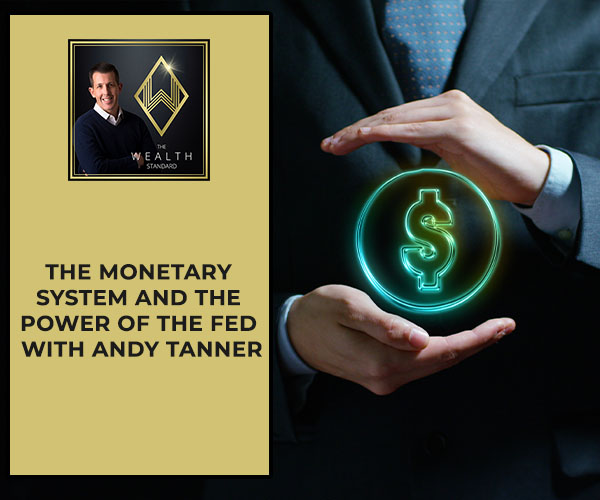
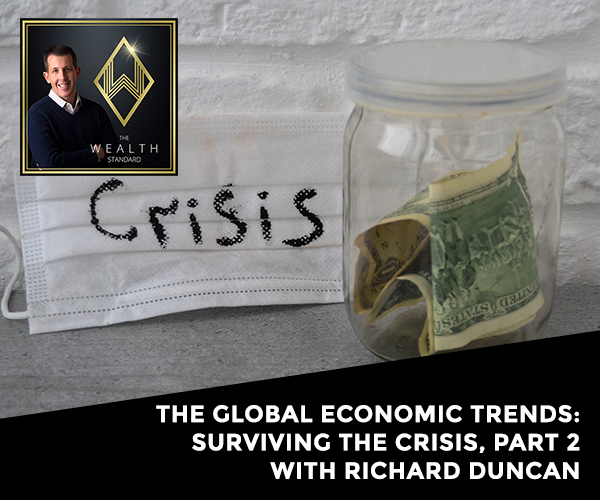
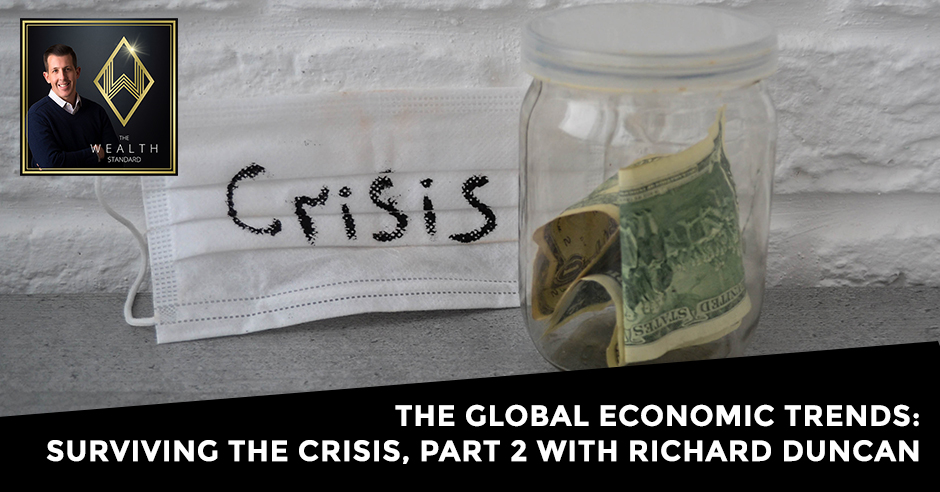



 Richard Duncan is the author of three books on the global economic crisis, including the international bestseller “The Dollar Crisis: Causes, Consequences, Cures,” which forecast the global economic crisis of 2008 with extraordinary accuracy.
Richard Duncan is the author of three books on the global economic crisis, including the international bestseller “The Dollar Crisis: Causes, Consequences, Cures,” which forecast the global economic crisis of 2008 with extraordinary accuracy.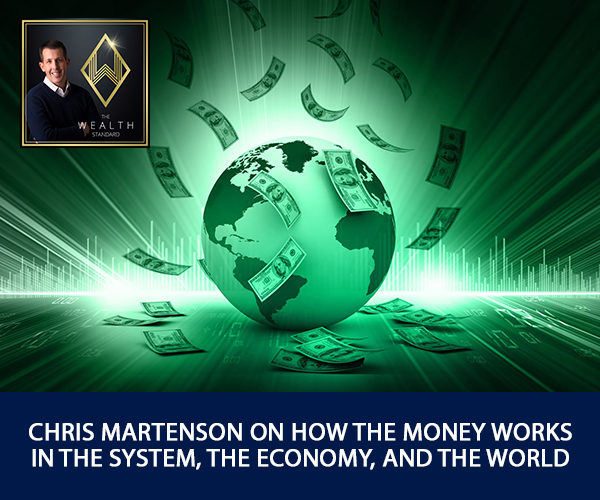
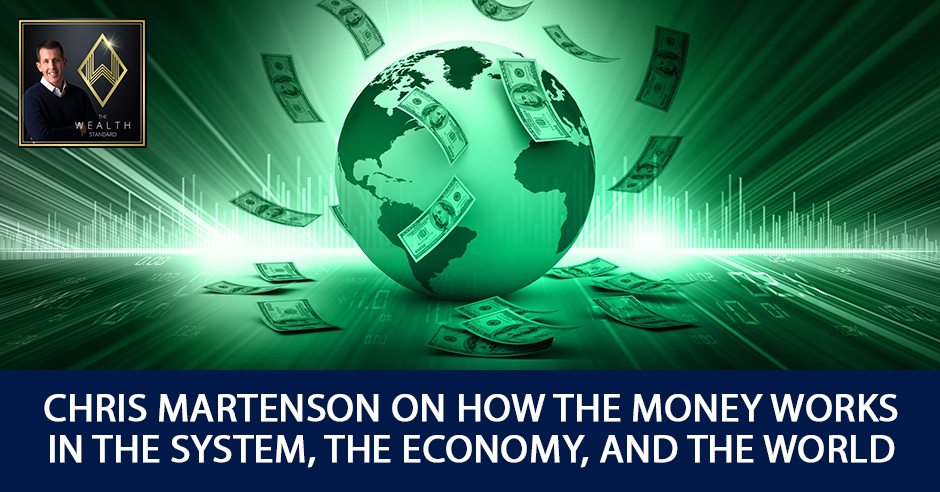
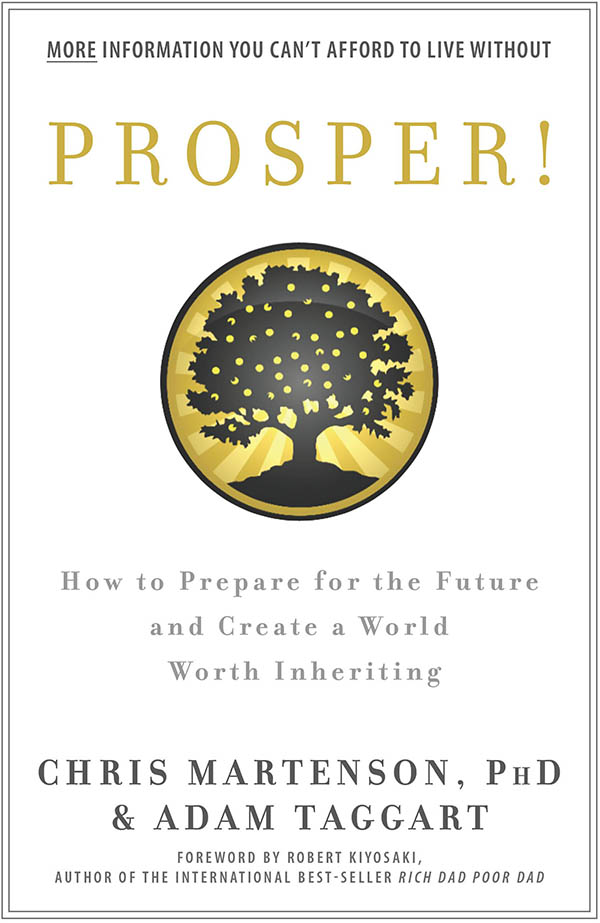

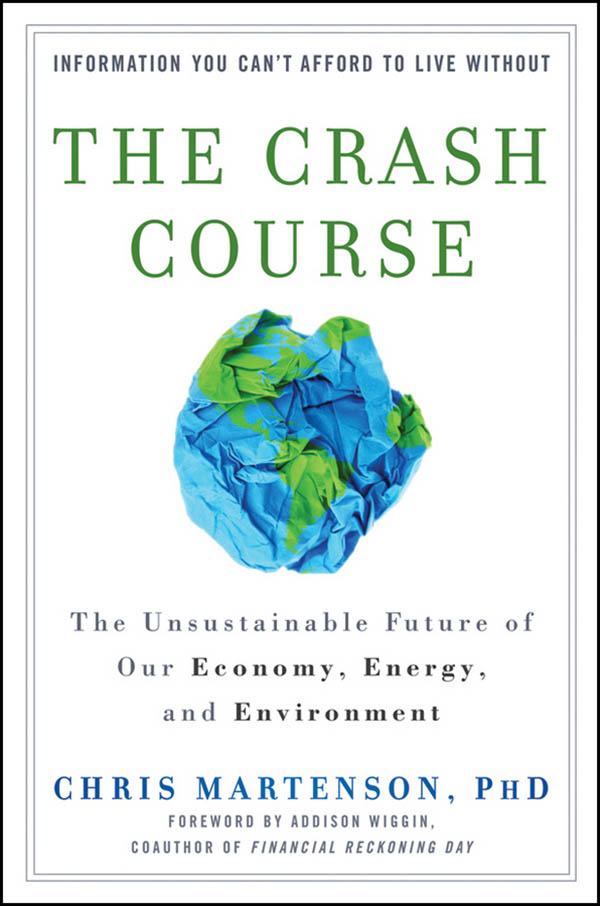
 Chris Martenson, Ph.D. (Duke), MBA (Cornell) is an economic researcher and futurist specializing in energy and resource depletion, and co-founder of
Chris Martenson, Ph.D. (Duke), MBA (Cornell) is an economic researcher and futurist specializing in energy and resource depletion, and co-founder of 














